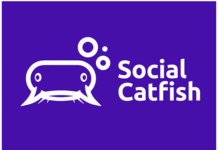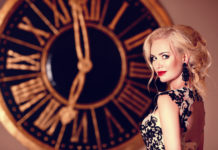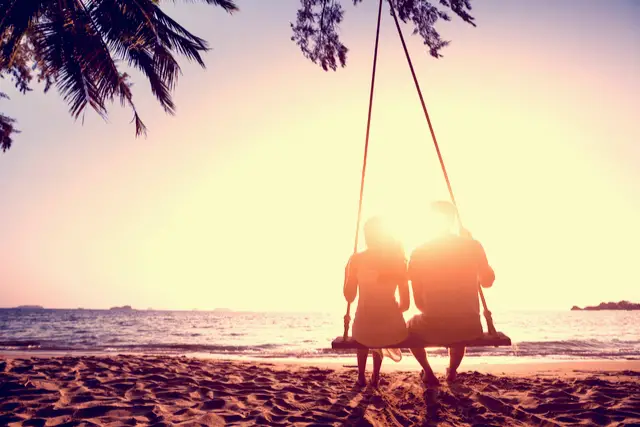(Last Updated on December 12, 2018 by Datezie Editors)
I have a little confession to make: when I turned 25, I was devastated.
Though at the time, I lived in New York City where toxic bachelorhood runs rampant and is contagious, my Southern roots were begging to get onboard with the whole marriage-and-baby train. Compared to most of my high school and college friends, I was well behind on the recommended timeline, and it made me anxious. In an effort to calm my nerves, I reassured myself that by 30—surely—I’d be well on my way down the aisle.
Five years, many dates, a few boyfriends, much growth in my career and one massive trip around the world later—and guess what? I’m still single. But more so, I’m thankful I haven’t found ‘The One’, and instead had so much time in my 20s to really figure out what mattered to me in a relationship. By going through so many positive and negative experiences, I am more confident in who I am, I’m more patient with people and don’t expect perfection, and I understand the value I bring to a partnership. Who I would have gladly married at 25 isn’t who I’m interested in today, and experts say it’s a smart move to take your time getting to happily ever after.
“Much like many other things in life, relationships have learning curves, and you don’t want to wait until you’re in your 30s or 40s to figure that out. Our minds are much like our bodies in that the older we get, the less adaptable we become,” explains dating expert Jessica DeRubbo. “Learning about relationships requires a lot of practice that should start when you are younger. There will be heartache, pain, tension, and decisions to make, but once you learn how to navigate through the not-so-good times, you’ll be better prepared for anything else that comes your way.”
If you’re worried about running out of time and your big 3-0 is looming, take a deep breath and pour yourself something strong. Instead, focus on having these important, and perhaps, life-changing romantic experiences in your 20s to prepare yourself for the best that’s yet to come.
Much like many other things in life, relationships have learning curves, and you don’t want to wait until you’re in your 30s or 40s to figure that out. Our minds are much like our bodies in that the older we get, the less adaptable we become
Experience a gut-wrenching break-up.
There’s nothing quite as emotionally jarring or painful as a heartache. Especially when a relationship ends in a dramatic or deceitful way, processing your feelings can take months—and for some, years. Regardless if you were together for six months or six years, disconnecting from a person who was your best friend, confidant and lover requires patience, tears and lots of healing. DeRubbo explains while difficult, this experience is essential to prepare you for the right person. “Everyone needs a good break-up when they are young so that they understand what heartache is, can reflect on what went wrong and so that they have a better idea of what they want in a long-term partner,” she continues. “It is also very important to go through the experience of bouncing back from the ending of a relationship and doing so in your 20s is a lot easier than when you are older.”
Explore your sexuality.
If you follow the mantra of the Kinsey scale, everyone falls somewhere between identifying as heterosexual, homosexual, bisexual or something else entirely. During our 20s, sex and relationship therapist Courtney Geter LMFT, CST recommends giving yourself permission to really explore what gets you going—and what falls short. Even if your parents prescribed to a certain lifestyle, this doesn’t mean you have match their rules. Whether you like or dislike interactions with members of the opposite or same sex, it’s worth trying to better understand your intimate desires. Geter also notes monogamy might not be for everyone, and exploring an open couplehood could be an eye-opening discovery, too.
Date outside of your typical ‘type.’
When you close your eyes, you probably have a clear vision of your ideal match. From how tall he or she is to how they look when they laugh and their profession, everyone has preferences. Usually refered to as a ‘type’, LGBTQ relationship expert Tammy Shaklee suggests throwing all of those rules out the window during your 20s and dating far outside your comfort zone. This includes saying ‘yes’ to drinks with someone of another ethnicity, race or culture, someone who is older and younger than you, and perhaps even someone from outside your socioeconomic status. “It will expose you to an appreciation for others, while teaching you that everyone was not raised like you, but that the simple desire of the heart to meet the right person is universal,” she explains. “It will help you to introduce yourself and your background in a more thorough and interesting fashion, when similar background assumptions aren’t there.”
Go on a trip with a partner—or a fling.
Everyone has a go-to travel buddy who matches their pace, shares their interests and is willing to try wacky foods or attend fun shows. Trekking with your best friend is a happy way to vacation, but DeRubbo says you learn much about yourself—and the dynamic of a relationship—by traveling with someone you’re intimately involved with. “Going somewhere with a new fling, local or otherwise, is a good way to see what your relationship is like outside of your comfort zones,” she explains. “If you can handle the ups and downs that traveling with others can sometimes entail now, you’ll have more experience in the future with other serious relationships.”
Consider therapy—even if you don’t think you need it.
Perhaps you were one of the lucky few who grew up in a completely normal, stress-free family, and you harbor little to no lingering resentment. Or you have achieved every last goal you set for yourself and feel fully confident in who you are. Even so though? Geter still recommends therapy. You should consider it a mental health massage that fosters balanced, productive and healthy relationships for the future. When you put your best self forward, you are in the most positive position to maintain a lasting twosome. “The first part of creating a therapeutic relationship is creating an actual relationship with another human being,” she continues. “Although it is a professional service provided to you, you still have to practice relationship skill building including communicating your thoughts and feelings, become vulnerable, and resolving conflict.”
Have a long-term, significant relationship.
DeRubbo says not everyone will have the opportunity for a serious relationship before they reach 30 candles on their birthday cake, and that’s okay. However, she recommends doing a bit of soul-searching on the ways, perhaps, you are holding yourself back or not taking the leap of love. Some people may worry a partner could interfere with their career or jeopardize their freedom, but she says the opposite can be true. “Often times being in a relationship with someone in your 20s gives you the freedom to relax more and put more efforts into your work, knowing that you will come home to someone when the day is done,” she explains.
For many people, a serious commitment in their 20s provides a preview to work and life balance, and give them the chance to navigate compromise before they have children or other responsibilities. “Having both a relationship and career at the same time, while figuring out finances and independence can help you learn how to juggle, manage and multi-task, all skills that are necessary later in life,” she adds.
Have more than one relationship.
Or four-month not-official, but together relationship. Or a 30-day whirlwind that challenged you emotionally and sexually. Or a year-long friends-with-benefits. The goal is variety, and working through many situations and types of encounters to better understand what you need and what you simply won’t tolerate. And, it also will make it less likely you’ll feel as if you missed out when you do find a partner for the long haul. “When I talk with people who have only had one relationship or one sexual relationship, more times than not, they always wonder what another relationship would have been like,” she explains. “Most aren’t unhappy in their current relationship, though curious thoughts about ‘what if’ will pop up if they felt like they didn’t experience everything they wanted to.”





